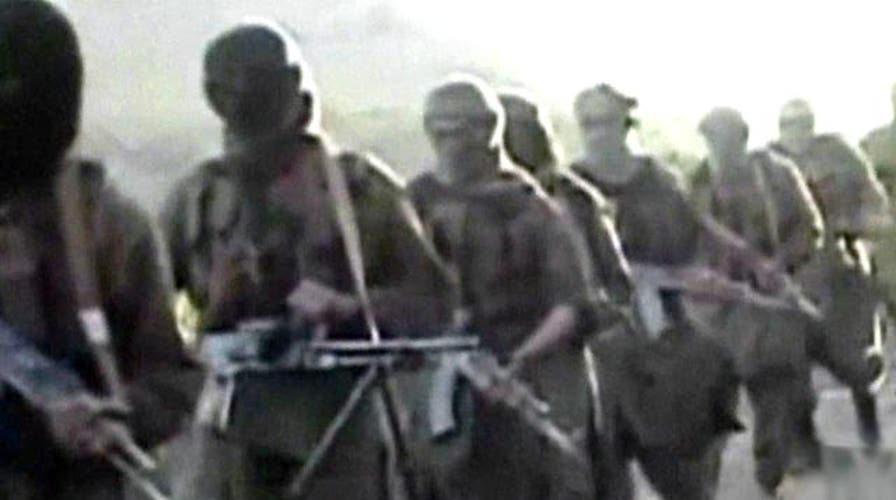The kidnapping of nearly 300 Nigerian girls has raised the international profile of the militant Islamic group Boko Haram and could help with future recruitment as well as fundraising, according to defense officials.
"It's a win-win for them no matter what happens,"said one official who spoke on background.
Even though the recent French intervention in Mali significantly cut financial support for the group, the defense officials said the terrorists could attempt to claim, "We (Boko Haram) were able to do this, we will do it again and no matter how many times this happens, there is nothing you (Nigerian government) can do to stop us.”
In the same way an attack and hostage taking at an Algerian gas plant in January 2013 raised the profile of Al Qaeda in the Islamic Magreb or AQIM, and its leader Mokhtar Belmokhar, the Nigerian kidnapping has given the little-known group whose name means “western education is sinful” a global stage.
The group, which is sympathetic to Al Qaeda but not an official affiliate, according to the same officials, has fighters now numbering in the hundreds to thousands.
As early as 2011, the group leveraged relationships in the region with Al Qaeda in the Islamic Magreb and Al Qaeda in Somalia, known as al-Shabaab, to train its fighters.
Defense officials described the scale of the girls’ kidnapping as a "planned operation" that also required coordination, given the number of hostages involved.
"We are dealing with a group that is very volatile, a group that is somewhat erratic, and we can't always predict how they will respond particularly to a rescue operation," one official said.
New analysis to be published Thursday in the CTC Sentinel from the Combatting Terrorism Center at West Point concludes Boko Haram gained strength between 2010 and 2012 by training and receiving money from Al Qaeda affiliates in north and east Africa.
If international pressure grows on Boko Haram, the group is likely to draw on its network which now extends to Great Britain and "Boko Haram may prepare for retaliatory attacks on Western targets in southern Nigeria or abroad..." the analysis said.
Separately, the defense officials had a similar assessment. "Their ability to project the threat is the question, how far can they project the threat?" asked one.





